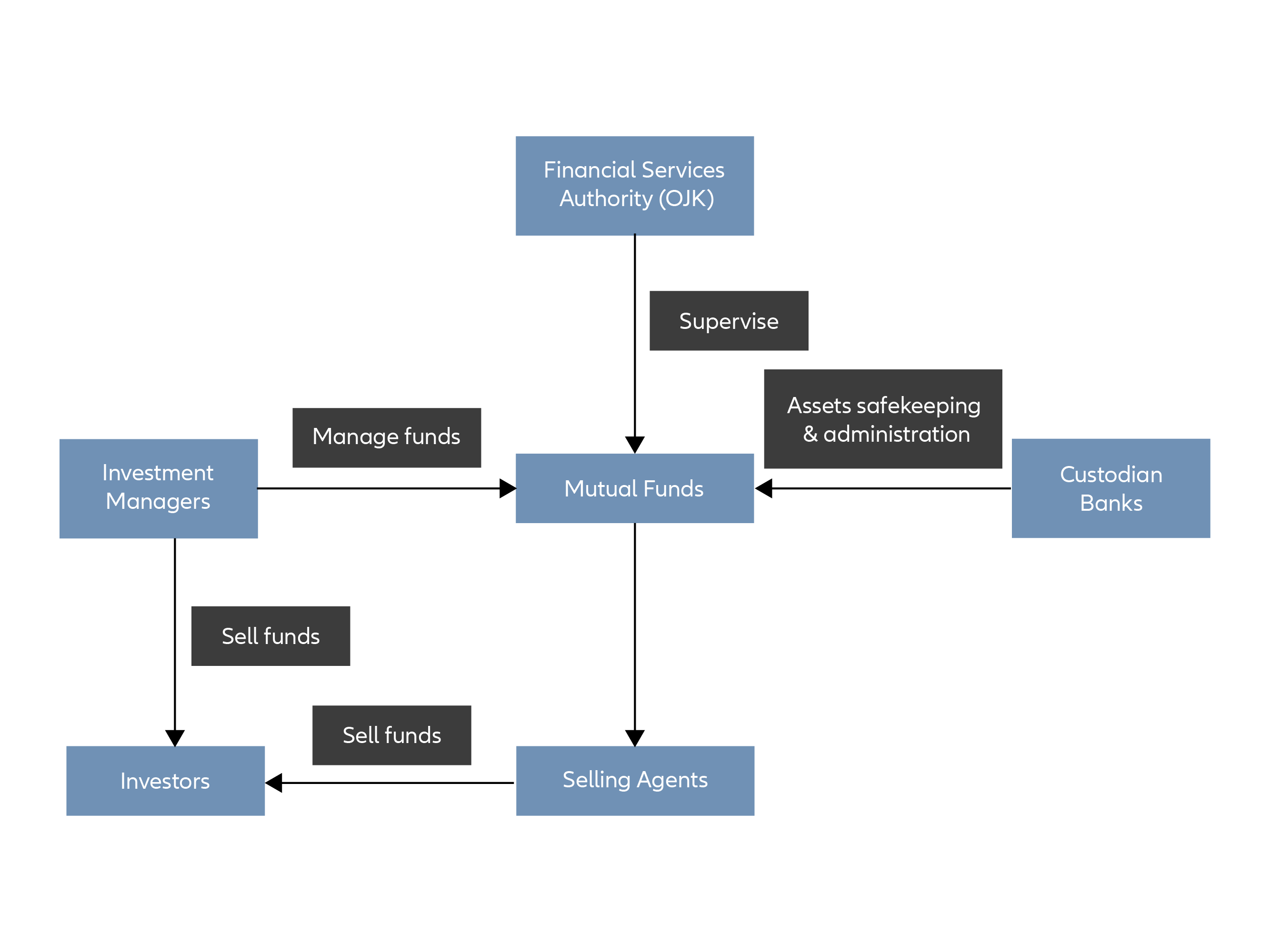Mutual Fund Investment Basics
Mutual Funds
Mutual funds, are a pool of money from a number of investors. You are essentially able to buy a small stake in the mutual fund's underlying assets. By investing as a group with other investors, you may access a larger and more diversified pool of assets than you would as an individual.
Because the various expenses of investing (such as brokerage commissions, custodian's fees etc.) are spread over a larger pool of assets and effectively shared with all the other investors, mutual funds may provide you with a cost effective investment solution.
Another key benefit of mutual funds is that it is professionally managed. You have access to the same expertise as a large institutional investor. Your minimum investable money need only be a few hundred thousand Rupiahs, or even less.
Equity Funds
These focus mainly or exclusively on stock market investments, looking to achieve capital appreciation over the long term. Most equity funds seek to achieve defined capital growth objective in particular ways. Some focus on one particular stock market – such as Hong Kong. Others will invest in stock markets throughout a particular region of the world – such as the Asia Pacific – or worldwide.
Sometimes equity funds will be defined by the sort of companies that they invest in, rather than the part of the world that they are focusing on. Growth stocks, for instance, are investments in companies whose businesses and earnings are likely to expand at a relatively rapid rate. Value stocks, by contrast, are investments in companies that may pay attractive potential dividends and in turn appear to be cheap in terms of the valuations.
Fixed Income Funds
Fixed Income funds tend to focus mainly on fixed income investments, looking for long term capital appreciation and income. Many bond funds can and do provide some capital growth, and they are normally less risky than equity funds.
Fixed Income funds are usually defined by the part of the world in which they invest, or the type of bonds in which they invest in. For instance, they may focus on government bonds. Alternatively, they may invest in corporate bonds, which are issued by large companies.
Most bonds are assessed for riskiness by major ratings agencies such as Standard & Poor’s or Moody's. Some bonds are seen by the agencies as being sufficiently risky that they are "below investment grade". Such bonds usually include high yield bonds and emerging markets debt.
Multi-asset Funds
"Multi-asset funds combine a stock component, a bond component and, sometimes, a money market component, in a single portfolio. They look for a mixture of potential income and modest capital appreciation.
Money Market Funds
Money Market Funds are the least volatile of mutual funds. They invest in bank deposits and, sometimes, short-term bonds of very high quality which has less than 1 year of maturity. They usually carry no risk of capital losses, but offer no prospect of capital gain. Returns to investors come entirely from interest income.
Money Market Funds are often attractive to investors who are very risk averse. Whilst they can also be useful as a place to park spare cash for a short period, it is not same as placing monies on deposit with a bank or deposit-taking company.
Diversification
Investing in funds provide you with the ability to build an enormous variety of portfolios. It is possible to spread your investments across stocks, bonds or money market/time deposits – or across a number of countries/locations, industries and sectors.
This diversification may reduce risk level, reduce volatility and increase the likelihood that your investments may produce a steady potential return over time.
By using mutual funds, you can build an investment portfolio that matches your investment objectives, risk tolerance and personal financial situation.
Fund Structure
Please click the image to view the enlarged version.



